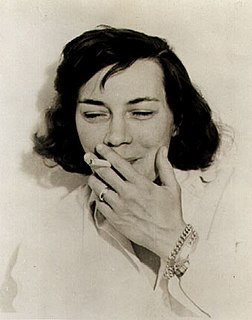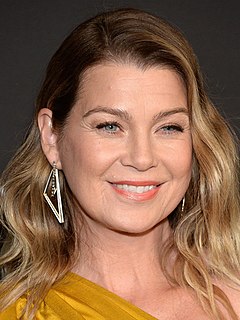A Quote by Greil Marcus
The Sixties are most generously described as a time when people took part - when they stepped out of themselves and acted in public, as people who didn't know what would happen next, but who were sure that acts of true risk and fear would produce something different from what they had been raised to take for granted.
Related Quotes
I think people in general don't take enough risks. Some people feel that before they can take on that next challenge they need to be 100 percent ready. It's just not true. Even people in their jobs aren't perfect at their jobs. So my biggest advice to people is to step out there. Take the risk and deal with it. What is the worst that could happen? It's about thriving on risk instead of shrinking from risk.
They were not friends. They didn't know each other. It struck Tom like a horrible truth, true for all time, true for the people he had known in the past and for those he would know in the future: each had stood and would stand before him, and he would know time and time again that he would never know them, and the worst was that there would always be the illusion, for a time, that he did know them, and that he and they were completely in harmony and alike. For an instant the wordless shock of his realization seemed more than he could bear.
It is said that the fear of public speaking is a fear greater than death for most people. According to psychiatrists, the fear of public speaking is caused by the fear of ostracism, the fear of standing out, the fear of criticism, the fear of ridicule, the fear of being an outcast. THE FEAR OF BEING DIFFERENT PREVENTS MOST PEOPLE FROM SEEKING NEW WAYS TO SOLVE THEIR PROBLEMS.
I was raised by drag queens, practically ... my mother died when I was four-years-old, so I was effectively raised by a bunch of different people. A lot of those people were friends of my sister, Kathleen, who had all these gay friends. She would baby-sit me everyday, and she would take me over to her friend's houses with all kinds of things going on: tucking, and eyebrow drawing, waxing, all sorts of things. I was literally raised by gay men.
People were intrinsically selfish, and many hated the idea of a woman in charge of the Institute. They would not put themselves at risk for her. Only a few weeks ago he would have said the same thing about himself. Now, knowing Charlotte, he realized to his surprise, the idea of risking himself for her seemed an honor, as it would be to most Englishmen to risk themselves for the queen.
I always had an affinity for older people. I had a job delivering newspapers, and one place I had to go was an old people's home. Some people would introduce you to their neighbors as if you were a nephew or grandson. They didn't get many visitors, so they acted like you were coming to see them. And that stuck with me for a long time.
I worked very hard to try and figure out what I thought and I believed that we were going to succeed and that revolutions would happen globally and we would be a part of that and we would have then not capitalism. We would have values based on human lives, not profit. We would actually transform the kinds of ways people built love and built community. It was a very shocking thing to me, out of the end of the 70s and the beginning of the 80s, to realize that that dream - while I still believed in it - was not going to happen in the way that I had hoped.
I was a big fan of a writer named Jack Vance, a science fiction writer. He always wrote about these guys who were either going down a river in a strange world or would be in this one land where people acted really strange, and he'd have these interactions with them that were strange - he'd usually get run out of town or something. Then he'd end up in the next town over where the rules were totally different. And I love this stuff.
There is a lot of sixties-bashing going on these days that I don't agree with at all. I feel that extremely important ideals were brought to the forefront of the collective consciousness at that time. Granted, drug use was so pervasive that our generation did not as a group have the capacity to manifest our ideals to any great extent. But many of the people who were young in the sixties and who were most touched by that collective ethos are still touched.
The most absurd public opinion polls are those on taxes. Now, if there is one thing we know about taxes, it is that people do not want to pay them. If they wanted to pay them, there would be no need for taxes. People would gladly figure out how much of their money that the government deserves and send it in. And yet we routinely hear about opinion polls that reveal that the public likes the tax level as it is and might even like it higher. Next they will tell us that the public thinks the crime rate is too low, or that the American people would really like to be in more auto accidents.
There were a lot of races I was going to win at Milwaukee, but I had mechanical problems or something would happen, ... In the early years, it just took a long time for me to win a race. I got in somebody's oil one time and got in the wall, had a clutch go out once. . . so when I finally won one, it was a long time coming.
































